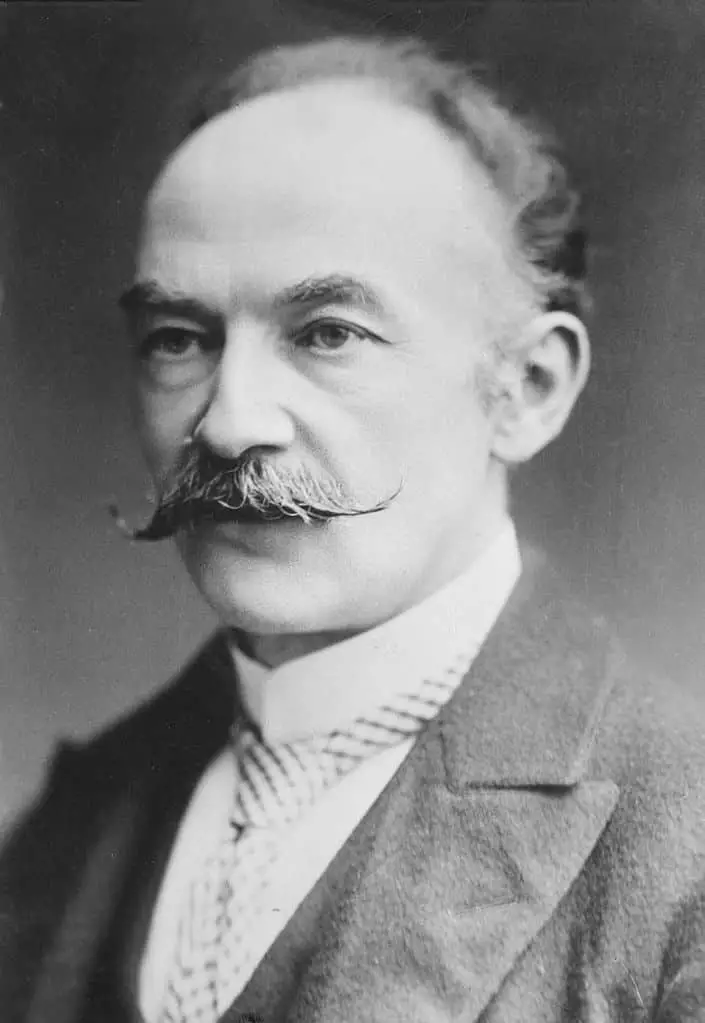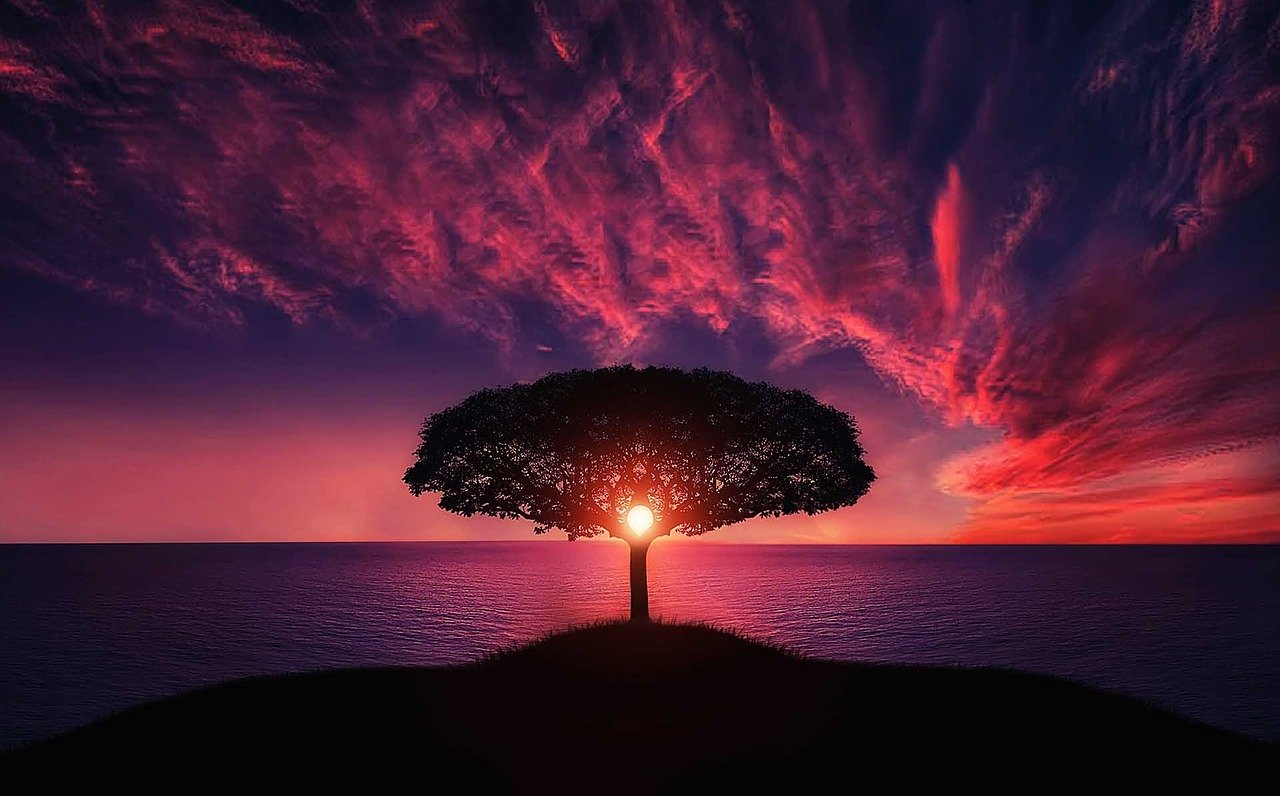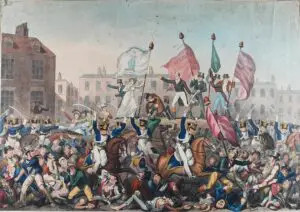
FULL POEM - SCROLL DOWN FOR LINE-BY-LINE ANALYSIS
Where we made the fire,
In the summer time,
Of branch and briar
On the hill to the sea
I slowly climb
Through winter mire,
And scan and trace
The forsaken place
Quite readily.
Now a cold wind blows,
And the grass is grey,
But the spot still shows
As a burnt circle–aye,
And stick-ends, charred,
Still strew the sward
Whereon I stand,
Last relic of the band
Who came that day!
Yes, I am here
Just as last year,
And the sea breathes brine
From its strange straight line
Up hither, the same
As when we four came.
– But two have wandered far
From this grassy rise
Into urban roar
Where no picnics are,
And one–has shut her eyes
For evermore

LINE-BY-LINE ANALYSIS
STANZA 1
Where we made the fire,
In the summer time,
Of branch and briar
The speaker reminisces about the summertime in the first stanza, recalling making a fire (using ‘branch and briar’ as firewood). Both the ‘summer time’ and ‘the fire’ are symbols of warmth and light, implying that it was a joyful time. The person pronoun ‘we’ suggests togetherness.
On the hill to the sea
The speaker’s surroundings represent the sense of freedom they felt at the time. The hill is a viewpoint from which to look out on the vastness of the sea, which is a metaphor for the speaker looking out on a ‘sea of opportunities’ that are free to be explored.
I slowly climb
Through winter mire,
And scan and trace
The forsaken place
Quite readily.
The use of pronoun shifts from ‘we’ to ‘I’, informing the reader that the speaker has returned alone to this ‘forsaken place’ that he remembered in the first three lines. Along with this shift from togetherness to solitude, there is a seasonal shift from summer to winter. This is a metaphor for a change in the emotions of the speaker – from feeling joyful in the company of others in the summer, to feeling melancholic and lonely in the winter.
STANZA 2
Now a cold wind blows,
The ‘cold wind’ is a symbol for the harshness of winter. It also juxtaposes ‘the fire’ (which radiates light and warmth in contrast to the icy ‘cold wind’) mentioned in the first stanza, also a metaphor for a change in the emotions of the speaker.
And the grass is grey,
The dullness of the image of the grey grass signifies lifelessness and desolation. Again, a symbol for the bleakness of winter, which itself is a pathetic fallacy for the speaker’s lifeless demeanour upon revisiting this ‘forsaken place’ in the winter compared to previously in the summer.
But the spot still shows
As a burnt circle–aye,
And stick-ends, charred,
Still strew the sward
The speaker has located the spot that they were looking for where they ‘made the fire in the summer time’. Remnants of the fire including the ‘burnt circle’ where it burned and the ‘charred stick-ends’ with which they made the fire that ‘still strew the sward’ (are still scattered upon the grass). Seeing the relics of happier times is a double-edged sword for the speaker, having both favourable and unfavourable consequences. On one hand, they represent good memories which may comfort and motivate the speaker to persevere through the hard times in life (that the winter is a metaphor for), however, on the flip side, these good memories may just cause them to lament this time in their life more, exacerbating their sorrow.
Whereon I stand,
Last relic of the band
Who came that day!
The second stanza ends in quite a melancholic fashion, with the speaker mentioning the ‘band’, or the people, ‘who came that day’. ‘Last relic’ implies something historical and confined to the past, giving a sense of finality to the end of these joyful times in the summer.
STANZA 3
Yes, I am here
Just as last year,
In the third stanza, the reader learns that this isn’t the first time that the speaker has revisited this place alone. In fact, he was there last year and, perhaps, a number of years before that also. This illustrates just how deeply nostalgic the speaker is about these visits made with friends in summers past, evoking a feeling of pity in the reader for him.
And the sea breathes brine
From its strange straight line
Up hither, the same
As when we four came.
Hardy personifies the sea as breathing out ‘brine’ (salty water) from the shoreline (‘its strange straight line’) inland. This use of sensory language emphasises that the area in a physical sense (independent of seasonal influence) is unchanged; to the eyes, the sea looks much the same as it did before and the sea air smells and tastes as salty as it ever did. However, emotionally the polar opposite is true. To the speaker, this place has transformed from symbolising jubilance to loss and a yearning for the past.
– But two have wandered far
From this grassy rise
Into urban roar
Where no picnics are,
Two of the four have evidently moved on with their lives to live in the city, likely perusing a career. Hardy’s choice of ‘urban roar’ to describe the city makes it seem animalistic and dangerous – conveying that the speaker views city life as unnerving intimidating, preferring to distance himself from it entirely. It sets quite a tragic tone, with the speaker’s friends leaving him behind in life – they, themselves, moving on, whilst he is unable to do so.
And one–has shut her eyes
For evermore.
To add to the tragic conclusion of the poem, the speaker also reveals that one of the four has sadly passed away. All of his companions have left him, in one form or another, confined to a life of loneliness and lamenting the happier times of the past.


